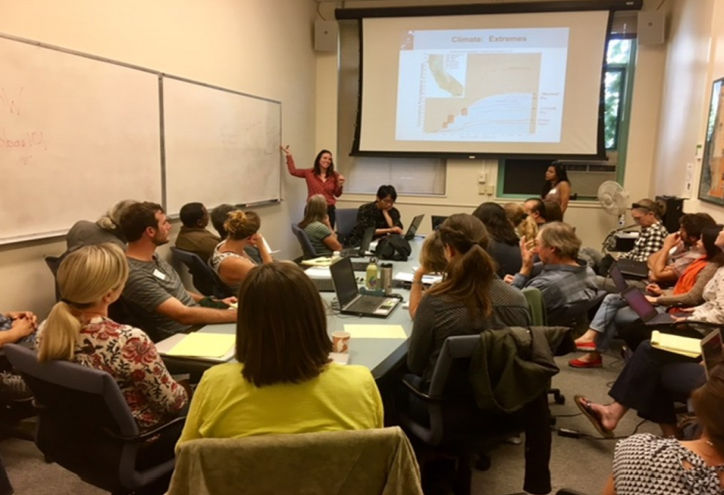Regional & International Chapters
SFS has established regional North American and international chapters of the society. This is an initiative to occur in parts of the World where the society can grow in membership and to also help groups of interested freshwater scientists in more regional and local pursuits of networking and to focus on common research/applied issues.
 Joint SFS California Chapter/California Aquatic Bioassessment Workgroup workshop held at UC Davis in October 2016.
Joint SFS California Chapter/California Aquatic Bioassessment Workgroup workshop held at UC Davis in October 2016.The change in the name of our society from the North American Benthological Society to the Society for Freshwater Science was a move in the direction of establishing a more global voice in addressing issues of our water resources. Establishing chapters of the society will further enhance that global voice. Our intent is not to compete with societies that have mutual interests and research agendas. To the contrary, we hope that having international and regional N.A. chapters will help to align our membership with that of other societies. We recognize that members of our society will also be members of other societies. We encourage cross-over membership because it creates diversity and mutual collaboration in our interactions and interests.
Please consider joining one of the SFS chapters, or starting one in your region. Membership in a chapter is not restricted to geographical location, although geography is a basis for identifying regional interests.
Current Chapters
- Africa
- California
- Latin America
- Mid-Atlantic
- Pacific Northwest
- South Asia
- Central U.S.
- South-Western U.S.
- Taiga
- Southeastern U.S.
- Non-Perennial Ecosystems
- Urban Chapter
Benefits of Chapter Membership
- Chapters foster collaboration and more energy/activities at a regional/international level.
- Chapters allow for the option of attending smaller, more focused meetings.
- Chapters provide affordable options for students to attend a professional meeting, and hence facilitate networking and professional growth.
- Chapters offer a better forum for communicating our science to the public and governments. A regional chapter would provide a central foundation to address environmental issues on a regional scale.
- SFS members with various expertise can assist chapters with specific needs and provide mentoring and information exchange.
- Taking advantage of laboratory tutorials that are available to SFS members on various subjects relevant to freshwater ecology, chapter members can share regional modifications for enhanced tutorials pertinent to their needs.
- Adding to the large library of scientific photos and videos that are available to SFS members, chapter members can organize and share relevant photos among their colleagues for specific regional environmental and research issues.
- Regional leadership becomes a stepping stone to society leadership. A pool of candidates with gained experience for future office in the society becomes more readily available.
- Chapters afford a greater potential for membership involvement at different levels of the society and the annual meetings.
- Chapters become a source of technical workshops and sessions at annual SFS conferences that are regional in focus.

